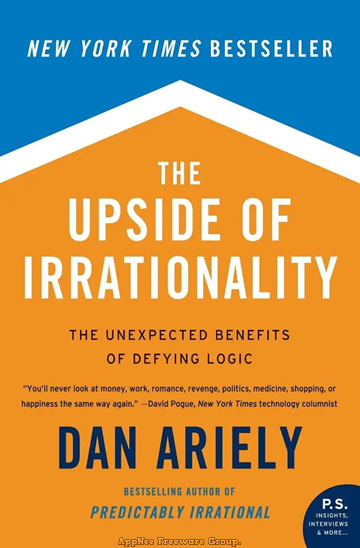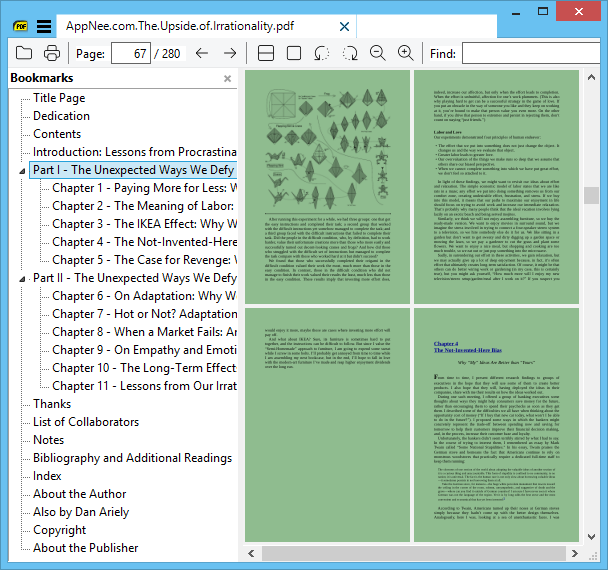| Ⅰ | This article along with all titles and tags are the original content of AppNee. All rights reserved. To repost or reproduce, you must add an explicit footnote along with the URL to this article! |
| Ⅱ | Any manual or automated whole-website collecting/crawling behaviors are strictly prohibited. |
| Ⅲ | Any resources shared on AppNee are limited to personal study and research only, any form of commercial behaviors are strictly prohibited. Otherwise, you may receive a variety of copyright complaints and have to deal with them by yourself. |
| Ⅳ | Before using (especially downloading) any resources shared by AppNee, please first go to read our F.A.Q. page more or less. Otherwise, please bear all the consequences by yourself. |
| This work is licensed under a Creative Commons Attribution-NonCommercial-ShareAlike 4.0 International License. |

What factors can cause substantial bonuses to reduce a CEO’s productivity? Why do we place such a high value on revenge? In what ways can unclear instructions actually benefit us? What accounts for the gap between our expectations of happiness and the actual sources of our happiness?
The Upside of Irrationality delves into the complexities of human behavior, particularly how irrationality can lead to beneficial outcomes. The author explores the paradox that while humans often act in ways that defy logic, these actions can sometimes yield positive results. Through a series of engaging experiments and real-world examples, he illustrates how our seemingly illogical decisions can enhance our lives, challenge traditional economic theories, and provide insights into the underlying motivations that drive our choices.
In The Upside of Irrationality, the author reveals the unexpected negative and positive impacts of irrationality on our lives. By examining our actions in the workplace and our personal relationships, he provides fresh perspectives and enlightening revelations about what genuinely drives us at work, how a single poor choice can evolve into a lasting negative habit, how we develop affection for those around us, and much more. This book will transform our understanding of ourselves in both professional and personal contexts, offering a more nuanced view of our irrational behaviors.
The author presents a compelling argument that irrational behavior is not merely a flaw in human reasoning but rather an integral aspect of our decision-making processes. He examines various scenarios, such as the impact of emotions on our choices and the influence of social norms, to demonstrate how these factors can lead to outcomes that are not only acceptable but also advantageous. By highlighting the role of context and the importance of understanding the psychological underpinnings of our actions, he encourages readers to reconsider their perceptions of rationality and the value of embracing our inherent irrational tendencies.
Ultimately, The Upside of Irrationality serves as a thought-provoking exploration of the human psyche, challenging the conventional wisdom that equates rationality with optimal decision-making. The author’s insights reveal that our irrational behaviors can foster creativity, enhance our relationships, and even contribute to our overall well-being. By embracing the complexities of human nature, the author invites readers to appreciate the nuanced interplay between reason and emotion, suggesting that our irrational choices may, in fact, be a source of strength rather than a weakness.

// Table Of Contents //
- Part I – The Unexpected Ways We Defy Logic at Work
- Chapter 1 – Paying More for Less: Why Big Bonuses Don’t Always Work
- Chapter 2 – The Meaning of Labor: What Legos Can Teach Us about the Joy of Work
- Chapter 3 – The IKEA Effect: Why We Overvalue What We Make
- Chapter 4 – The Not-Invented-Here Bias: Why “My” Ideas Are Better than “Yours”
- Chapter 5 – The Case for Revenge: What Makes Us Seek Justice?
- Part II – The Unexpected Ways We Defy Logic at Home
- Chapter 6 – On Adaptation: Why We Get Used to Things (but Not All Things, and Not Always)
- Chapter 7 – Hot or Not? Adaptation, Assortative Mating, and the Beauty Market
- Chapter 8 – When a Market Fails: An Example from Online Dating
- Chapter 9 – On Empathy and Emotion: Why We Respond to One Person Who Needs Help but Not to Many
- Chapter 10 – The Long-Term Effects of Short-Term Emotions: Why We Shouldn’t Act on Our Negative Feelings
- Chapter 11 – Lessons from Our Irrationalities: Why We Need to Test Everything
// Download URLs //
| Format | Download | Size |
 |
1.67 MB | |
| EPUB |  |
1.06 MB |
(Homepage)
| If some download link is missing, and you do need it, just please send an email (along with post link and missing link) to remind us to reupload the missing file for you. And, give us some time to respond. | |
| If there is a password for an archive, it should be "appnee.com". | |
| Most of the reserved downloads (including the 32-bit version) can be requested to reupload via email. |